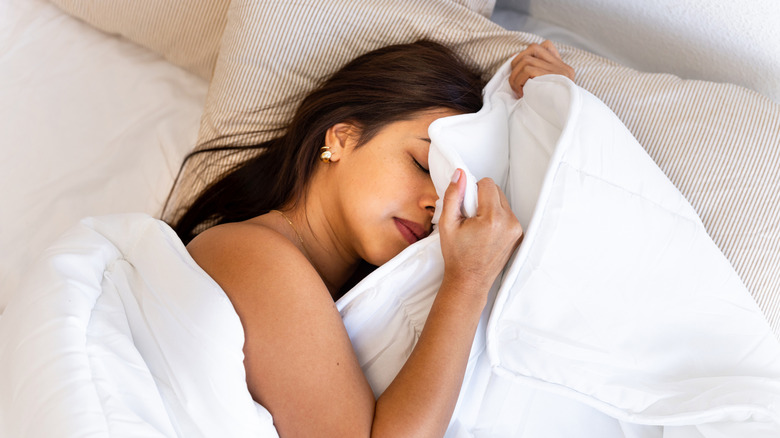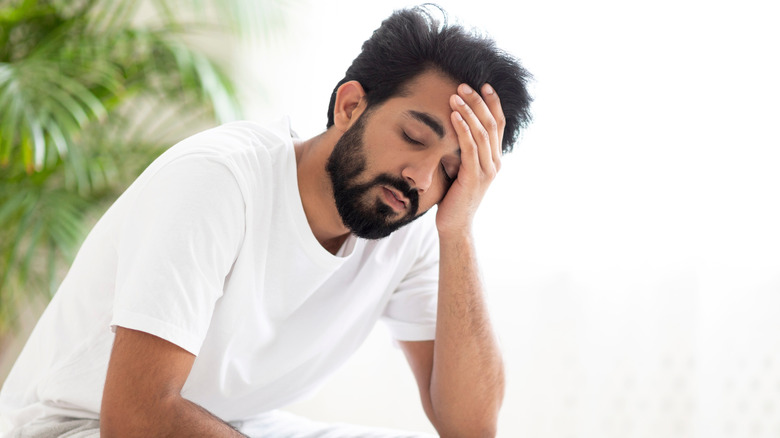When You Oversleep, This Is What Happens To Your Immune System
Weeknights can make it hard to hit the recommended seven hours of sleep. Sometimes it's your own doing, like staying up late binge-watching a new series or letting happy hour run way past your bedtime. Even with good sleep hygiene, things like work stress or a late-night phone call can still rob you of those essential REM and deep-sleep hours (find out what your sleep habits say about your health).
Many people try to make up for lost sleep by sleeping in on weekends, but chronic oversleeping isn't healthy either. The sweet spot is about seven to nine hours a night. Too much sleep can be just as harmful as too little. While it's normal to sleep more when recovering from illness, regularly getting more than nine hours a night — aka hypersomnia — can be a concern.
Hypersomnia can leave you with headaches, brain fog, irritability, and even more daytime sleepiness. And while you probably know that not getting enough sleep can stress your immune system, oversleeping on a regular basis can strain it as well.
Too much sleep may raise your risk of infection
Getting a good night's sleep is great for your immune system, so it might seem strange that too much sleep might actually work against it. A 2023 study in Frontiers in Psychiatry looked at how sleep duration related to infections and antibiotic use over a three-month period. They found that people who slept less than six hours or more than nine hours a night were more likely to report having an infection in that time frame. For the long sleepers, the risk was 44% higher.
The study couldn't say for sure why too little or too much sleep affected immunity, but the researchers had some ideas based on previous findings. It's possible that people who sleep a lot already have underlying health issues that weaken their immune system. In other words, the extra hours of sleep might be a symptom of poor health, not the cause. Both long and short sleep patterns have also been linked to higher levels of inflammation, which can put extra stress on the immune system.
A 2019 article in Physiological Reviews explored how sleep and the immune system work hand in hand. When you're sick, your immune system kicks into gear to fight off the infection, which is why you might find yourself sleeping longer and more deeply. Sleep also helps keep your immune system in balance by regulating inflammation levels in your body.
Oversleeping is linked to other health conditions
Oversleeping may not just put extra stress on your immune system. Hypersomnia can also raise your risk of chronic conditions like obesity and type 2 diabetes, according to a 2018 article in Sleep Medicine Reviews. Sleeping more than nine hours doesn't automatically mean you're getting quality sleep. Poor sleep quality can lower the hormones that help you feel full after eating, which might lead you to eat more. Long sleepers also tend to be less physically active, meaning they burn fewer calories and may have lower insulin sensitivity. On top of that, they often follow less healthy eating patterns, which can weaken the body's ability to process glucose and contribute to weight gain.
Although getting too much sleep might not directly cause a mental health condition, it can be a sign of one. A 2009 study in the Journal of Clinical Psychiatry examined the sleep patterns of older adults, finding that those who slept less than six hours or more than nine hours were more likely to have depression compared to those who slept seven to eight hours. Interestingly, older adults with depression often spent more time in bed but didn't actually get more sleep.


